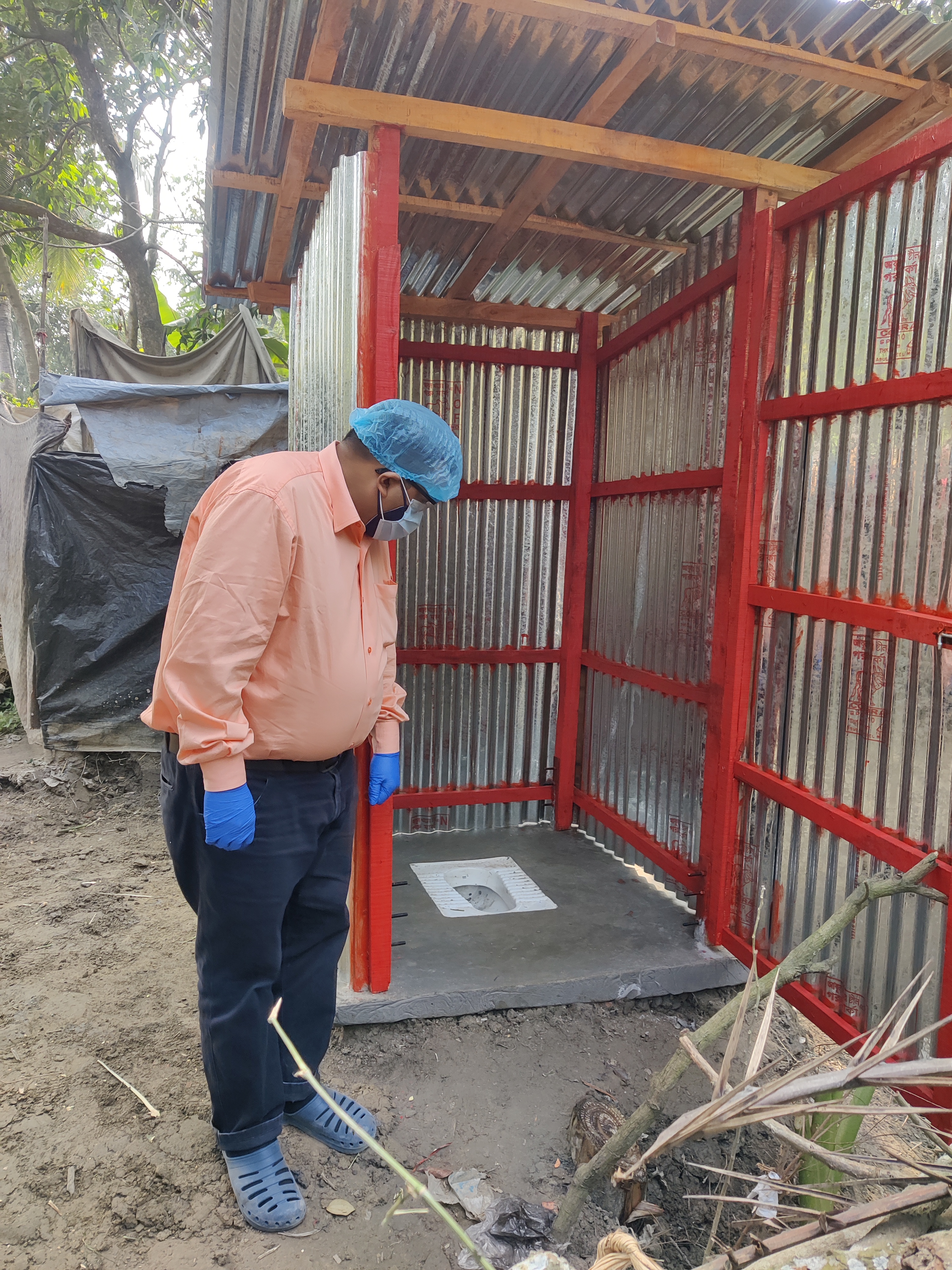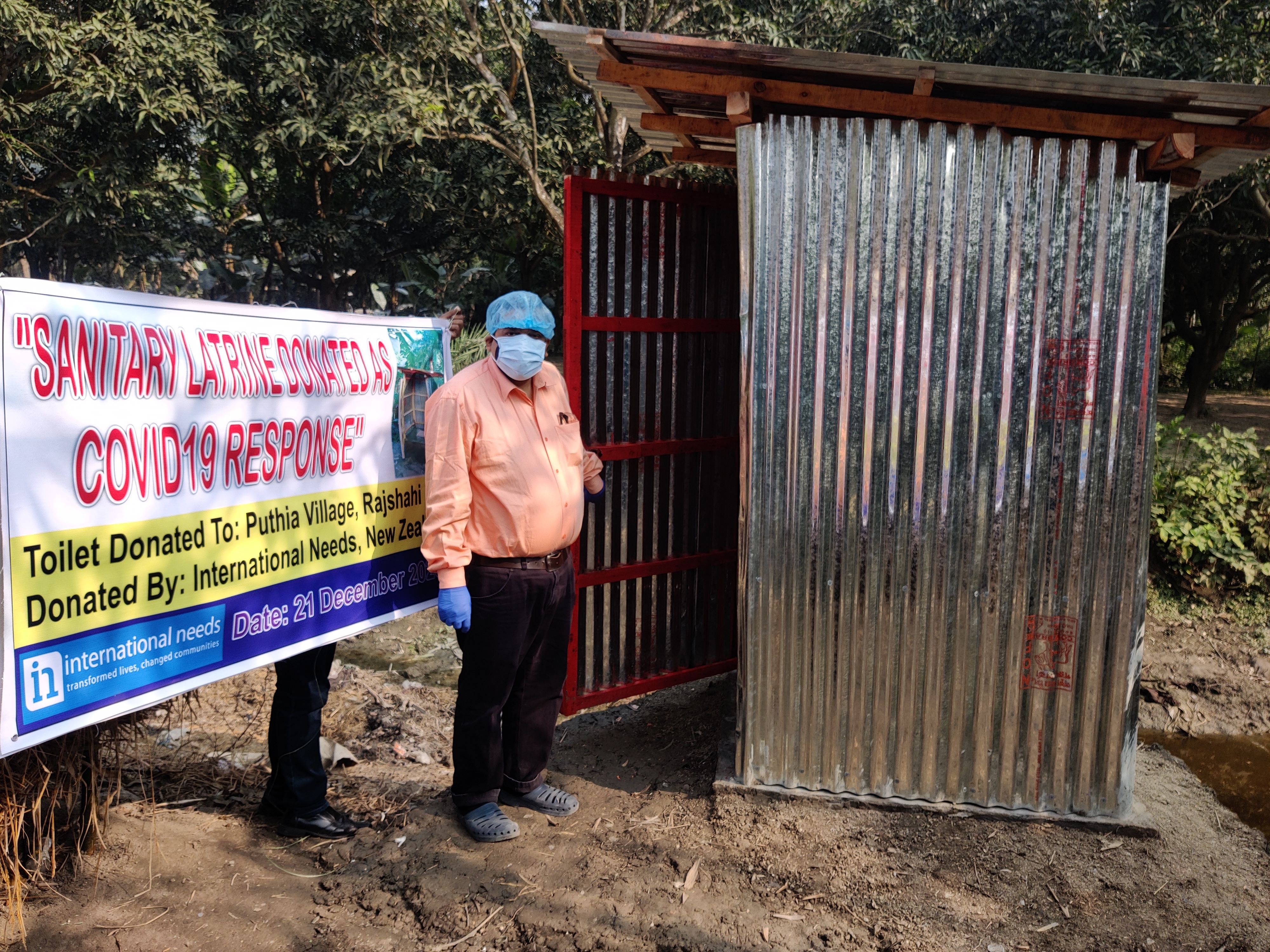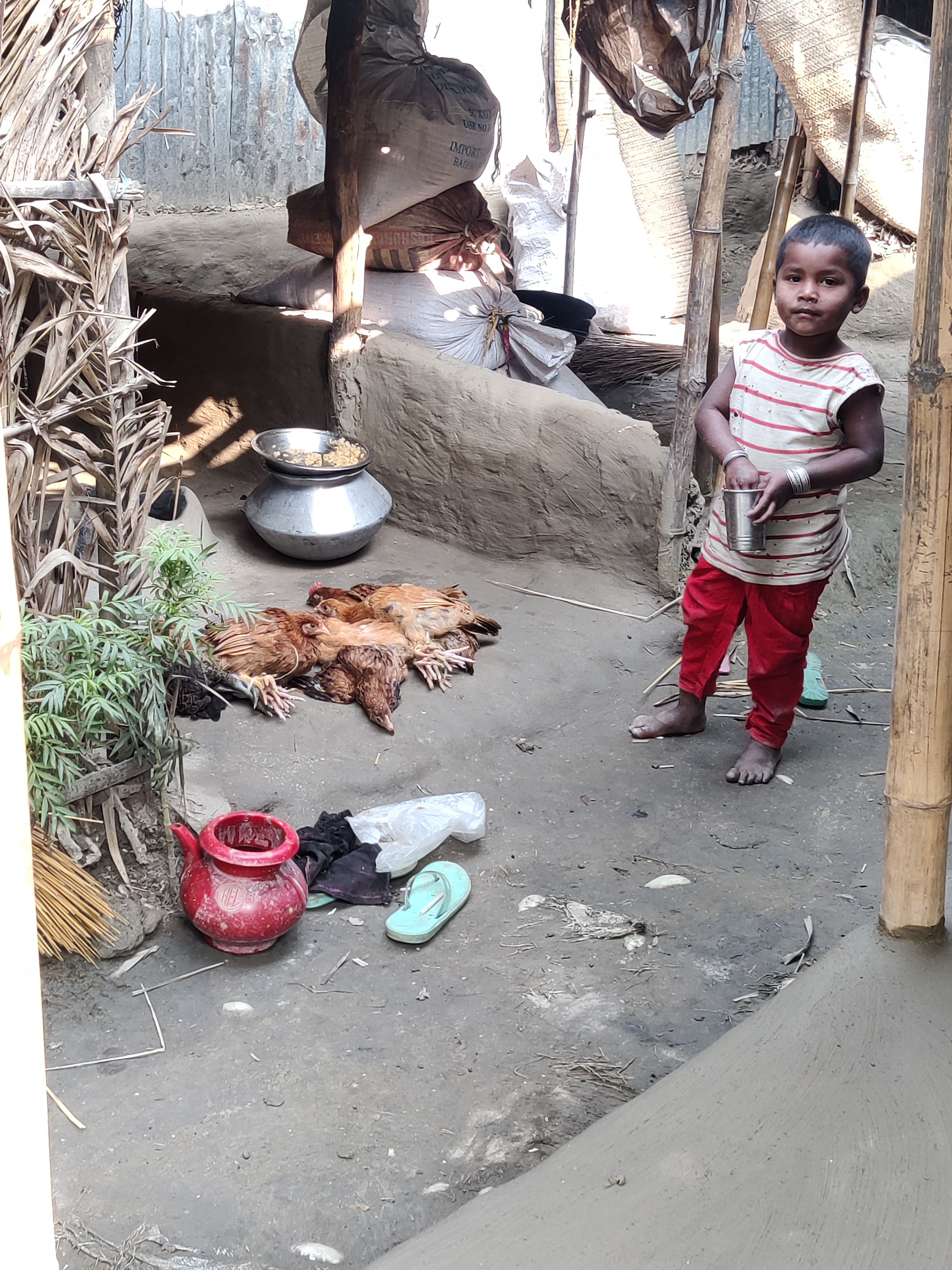
Bangladesh
Livelihood & Sanitation Project
Livelihood programs & Sanitation facilities for villages in Northern Bangladesh
In the North Eastern regions of Bangladesh, community worker Toroni has been working with local indigenous villagers that have been severely affected by the Covid-19 pandemic. Whilst working, Toroni came across a native tribe outside the area of Puthia, in the Natore region. What he discovered was 150 native Santal people living in dire poverty. The Santal people are an ethnic Bangladeshi group, with their own culture, language dialect and way of life. They are deemed untouchables with no civil rights or known citizenship in Bangladesh. Toroni saw that these people had no food as they were not able to work in the fields due to Covid-19. They had to rely on nature and had been eating wild plants and potatoes for the last three months.
International Needs Bangladesh has been able to support the village with food relief and implementing some livelihood programs to help teach the locals to become more self-sustainable. This will enable them to generate their own income and provide a way out of poverty for these families. The program also enables families to be trained in chicken rearing, vegetable growing and tailoring/sewing.
Not only are the IN team in Bangladesh implementing livelihood programs, they have also been implementing a sanitation program that includes setting up wash stations and building sanitary latrines for the villagers to use. Currently latrines are unsafe and pose a significant health risk to people as faeces and urine goes straight into the river system. Children and women downstream collect water from the river to drink, use in cooking and cleaning. Water borne diseases are prevalent, causing a range of health complications.
Did you know that Every year millions of people around the world die from water borne diseases, which are easily preventable?
Would you consider sponsoring a livelihood program to help bring a family out of poverty? Education is the only way we will see the bondage of poverty be lifted out of these regions.
Or could you help restore hope and dignity for the people of the North Eastern villages of bangladesh, by helping International Needs build new, safe and clean wash and sanitation facilities for families in the village.
International Needs Bangladesh has been able to support the village with food relief and implementing some livelihood programs to help teach the locals to become more self-sustainable. This will enable them to generate their own income and provide a way out of poverty for these families. The program also enables families to be trained in chicken rearing, vegetable growing and tailoring/sewing.
Not only are the IN team in Bangladesh implementing livelihood programs, they have also been implementing a sanitation program that includes setting up wash stations and building sanitary latrines for the villagers to use. Currently latrines are unsafe and pose a significant health risk to people as faeces and urine goes straight into the river system. Children and women downstream collect water from the river to drink, use in cooking and cleaning. Water borne diseases are prevalent, causing a range of health complications.
Did you know that Every year millions of people around the world die from water borne diseases, which are easily preventable?
Would you consider sponsoring a livelihood program to help bring a family out of poverty? Education is the only way we will see the bondage of poverty be lifted out of these regions.
Or could you help restore hope and dignity for the people of the North Eastern villages of bangladesh, by helping International Needs build new, safe and clean wash and sanitation facilities for families in the village.








